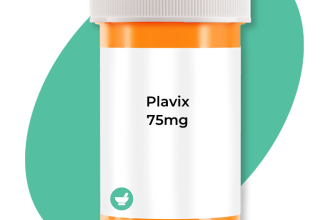For those dealing with fungal infections, Diflucan is a go-to option widely prescribed by healthcare professionals. This antibiotic, known generically as fluconazole, effectively treats various fungal issues, including candidiasis and certain types of meningitis.
When prescribed Diflucan, patients can expect a straightforward treatment process. It’s crucial to adhere to the dosage instructions given by your doctor to achieve optimal results. Usually administered as a single dose for uncomplicated infections, the prescribed length may extend for more severe cases.
Monitoring potential side effects is essential. Some patients report mild reactions, such as headaches or gastrointestinal discomfort. However, serious side effects are rare. Always consult your healthcare provider if you experience unusual symptoms. This proactive approach helps ensure a safe and beneficial treatment experience.
The effectiveness of Diflucan in treating infections can significantly improve the quality of life for many individuals. Engaging in a discussion with a healthcare provider about your specific condition will help determine whether Diflucan is the right choice for you.
- Diflucan Prescription Drug
- Usage Guidelines
- Side Effects and Precautions
- Understanding the Uses of Diflucan in Treating Fungal Infections
- Dosage Guidelines and Administration Methods for Diflucan
- Potential Side Effects and Contraindications of Diflucan
- What to Discuss with Your Doctor Before Starting Diflucan
Diflucan Prescription Drug
Diflucan, known generically as fluconazole, is a prescription medication primarily used to treat fungal infections. It works by inhibiting the growth of fungi, making it effective for conditions such as candidiasis and cryptococcal meningitis. This drug proves beneficial for patients with weakened immune systems or those undergoing chemotherapy or organ transplants.
Usage Guidelines
Typically, Diflucan is administered orally in tablet form, but it can also be given intravenously. Dosages vary based on the type and severity of the infection. For uncomplicated vaginal yeast infections, a single dose of 150 mg may suffice. In cases of more severe infections, healthcare providers may prescribe higher doses or a longer treatment duration.
Side Effects and Precautions
While many tolerate Diflucan well, some common side effects include headaches, nausea, and abdominal pain. Serious complications can occur, such as liver damage and severe allergic reactions, although these are rare. Inform your doctor about any other medications you take, as Diflucan can interact with several drugs, including blood thinners and certain antidepressants.
Consult your healthcare provider to determine if Diflucan is suitable for your condition, and adhere strictly to the prescribed dosage for optimal results.
Understanding the Uses of Diflucan in Treating Fungal Infections
Diflucan, known generically as fluconazole, is primarily prescribed to treat a variety of fungal infections. It effectively combats infections caused by fungi such as Candida, Cryptococcus, and certain types of dermatophytes. Patients with weakened immune systems, such as those with HIV/AIDS or undergoing chemotherapy, often benefit significantly from Diflucan’s antifungal properties.
This medication is commonly used to treat:
| Type of Infection | Common Conditions |
|---|---|
| Candidiasis | Oral thrush, vaginal yeast infections, systemic candidiasis |
| Cryptococcal Meningitis | Typically seen in immunocompromised patients |
| Dermatophytosis | Skin and nail fungal infections |
For vaginal yeast infections, a single-dose oral treatment is often sufficient. For more severe or chronic conditions, a longer treatment course may be necessary. Patients taking Diflucan should be aware of potential interactions with other medications, particularly those affecting liver metabolism.
Hydration and following the prescribed dosage regimen can enhance treatment outcomes. Regular follow-up with a healthcare provider can ensure effective management of any persistent or recurrent infections. Overall, understanding the specific uses and administration of Diflucan can lead to better treatment decisions and improved patient health.
Dosage Guidelines and Administration Methods for Diflucan
The standard oral dose for Diflucan (fluconazole) varies based on the specific infection being treated.
- For vaginal candidiasis: The typical dose is a single 150 mg tablet taken orally.
- For oropharyngeal candidiasis: Start with 200 mg on the first day, followed by 100 mg daily for at least two weeks.
- For systemic candidiasis: Initial dose is 400 mg on the first day, then reduce to 200 mg daily. Treatment duration may range from two weeks up to several months depending on the response.
- For cryptococcal meningitis: Administer 400 mg on the first day, followed by 200 mg daily for at least 10 to 12 weeks.
This medication is available in various forms including oral tablets, oral suspension, and intravenous injection. Choose the form based on your specific needs and healthcare provider recommendations.
Administer Diflucan with or without food. If using the oral suspension, shake well before measuring the dose. Ensure to follow any additional instructions provided by your healthcare provider.
Adjustments for renal impairment are necessary; those with severe kidney problems may require lower doses. Pregnant and breastfeeding individuals should consult a healthcare professional for tailored advice.
Always complete the prescribed course, even if symptoms improve before finishing the medication, to avoid recurrence. Keep track of any side effects and report them to your healthcare provider promptly.
Potential Side Effects and Contraindications of Diflucan
Patients taking Diflucan may experience side effects such as nausea, headache, dizziness, diarrhea, and abdominal pain. In some cases, more serious effects can occur, including liver enzyme elevation, skin rashes, and allergic reactions. Monitor any unusual symptoms closely and report them to your healthcare provider.
Contraindications for Diflucan include a known allergy to fluconazole or other azole antifungals. Patients with a history of liver disease or those taking certain medications, such as some anticoagulants or other drugs that affect liver metabolism, should consult their healthcare provider before starting therapy. Pregnant women should also discuss potential risks with their doctor, as fluconazole can have effects on fetal development.
Regular monitoring of liver function tests may be necessary for those on prolonged therapy. Additionally, those with heart conditions should be cautious, as Diflucan can prolong the QT interval in some patients, potentially leading to serious heart rhythm disturbances.
Always inform your healthcare provider of all medications you are currently taking to avoid interactions. This comprehensive approach to your health ensures safety while using Diflucan.
What to Discuss with Your Doctor Before Starting Diflucan
Inform your doctor about any allergies you have, especially to antifungal medications. This information helps prevent potential allergic reactions.
Share your complete medical history, including any liver or kidney diseases. Diflucan can impact these organs, so your doctor needs to assess your overall health before prescribing.
List all medications and supplements you currently take. Diflucan may interact with various drugs, including blood thinners and certain anticonvulsants. Your doctor can adjust dosages or suggest alternatives if necessary.
Discuss any existing medical conditions, particularly those affecting your immune system, such as HIV/AIDS or diabetes. These factors might influence the suitability of Diflucan for your treatment.
If you are pregnant, planning to become pregnant, or breastfeeding, inform your doctor. They will evaluate the risks versus benefits of using Diflucan during these times.
Inquire about the expected outcomes and any potential side effects associated with Diflucan. Knowing what to anticipate can alleviate concerns and help you recognize adverse reactions early.
Ask about the appropriate dosage and duration of your treatment. Understanding your specific regimen is critical for achieving the desired results.
Finally, voice any concerns or questions about the treatment plan. Establishing open communication with your healthcare provider fosters trust and ensures a more tailored approach to your health needs.










